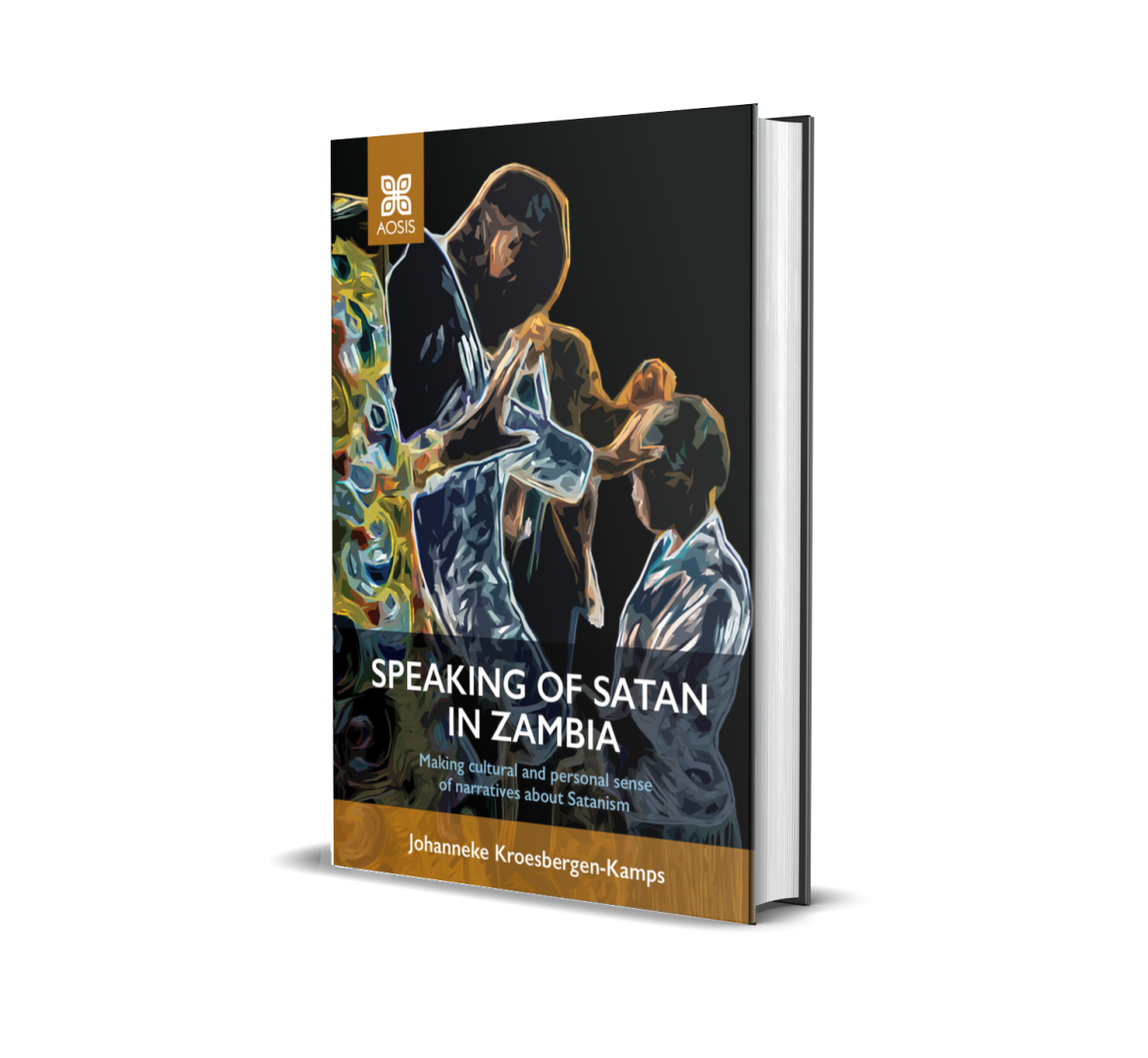Speaking of Satan in Zambia: Making cultural and personal sense of narratives about Satanism is published by AOSIS Scholarly Books.
In this book, it is argued that narratives about Satanism, which have become popular in the Christian context of Zambia from the 1990s onwards, make cultural sense because of their links to traditional African notions as well as contemporary Christian theologies. These narratives also resonate with unease regarding the cultural change, which is connected by Zambians to modernity. Narratives about Satanism further make personal sense to their narrators, the pastors who provide a platform for them, and their audiences. These arguments contribute to the academic study of religion in Africa, in particular of African Christianity and of witchcraft-related phenomena, as well as to the global study of discourses on Satanism and other conspiracy theories. All of these disciplines are related to the topic of Satanism in Zambia, but the phenomenon itself has not been discussed at length, which makes the existing academic literature incomplete and inadequate. The comprehensive focus on the case of narratives about Satanism in Zambia offers new insights and enhances current theoretical reflection.
The research presented in this book is original, carried out during fieldwork spanning from 2012 to 2017 in Zambia and literature study in the years after that. Methodologically, the research is based on participant observation in churches in which testimonies of ex-Satanists were presented, as well as participation in the Fingers of Thomas, a Roman Catholic group which investigates rumours about Satanism. Furthermore, it is based on interviews with pastors and students of theology active in the deliverance ministry from Pentecostal as well as mainline churches and also on interviews with people who have had experiences of Satanism. Finally, the research is based on an analysis of collected testimonies of ex-Satanists as they were presented in these interviews, in churches, on radio programmes, in newspapers and in other sources.
Copyright (c) 2022 Johanneke Kroesbergen-Kamps (Author)
Speaking of Satan in Zambia is a thought-provoking, magnificently crafted, and eloquently articulated piece in an area to which scholars have not given much attention. Weaved with a narrative thread from a parade of anti-Satanic discourses, Kroesbergen-Kamps offers a fascinating study of how Christians process and give meaning to perceptions of Satan and Satanism in postcolonial Zambian modernity. She first clears the debris of scholarly discourses on the concepts of Satan and Satanism. Through implicit metaphysical realism and epistemic empathy, Kroesbergen-Kamps guides the readers to anti-Satanism discourses in Zambia. She argues that indigenous religious background conjoins witchcraft notions and experiences and invests the ideas of Satan and Satanism with culture-loaded meanings, which conceptually enable Christians to make sense of the imponderable fluid and contradictory aspects of modernity. Embedded within a religio-secular informed society, Christians narrate and express the meanings of Satan and Satanism as determined by indigenous cosmologies and equivalent categories and simultaneously retain their global dimensions. This excess interpretation overcomes spatiality and legitimates the singular global influence of Satan and Satanism while affirming particular manifestations of evil. This book gives a fresh perspective on anti-Satanic narratives and reminds the reader that more is happening in the hearts and thoughts of Christians than may be construed by all scholars put together.
Prof. Chammah J. Kaunda, United Graduate School of Theology, Faculty of Theology, Yonsei University, Seoul, South Korea

